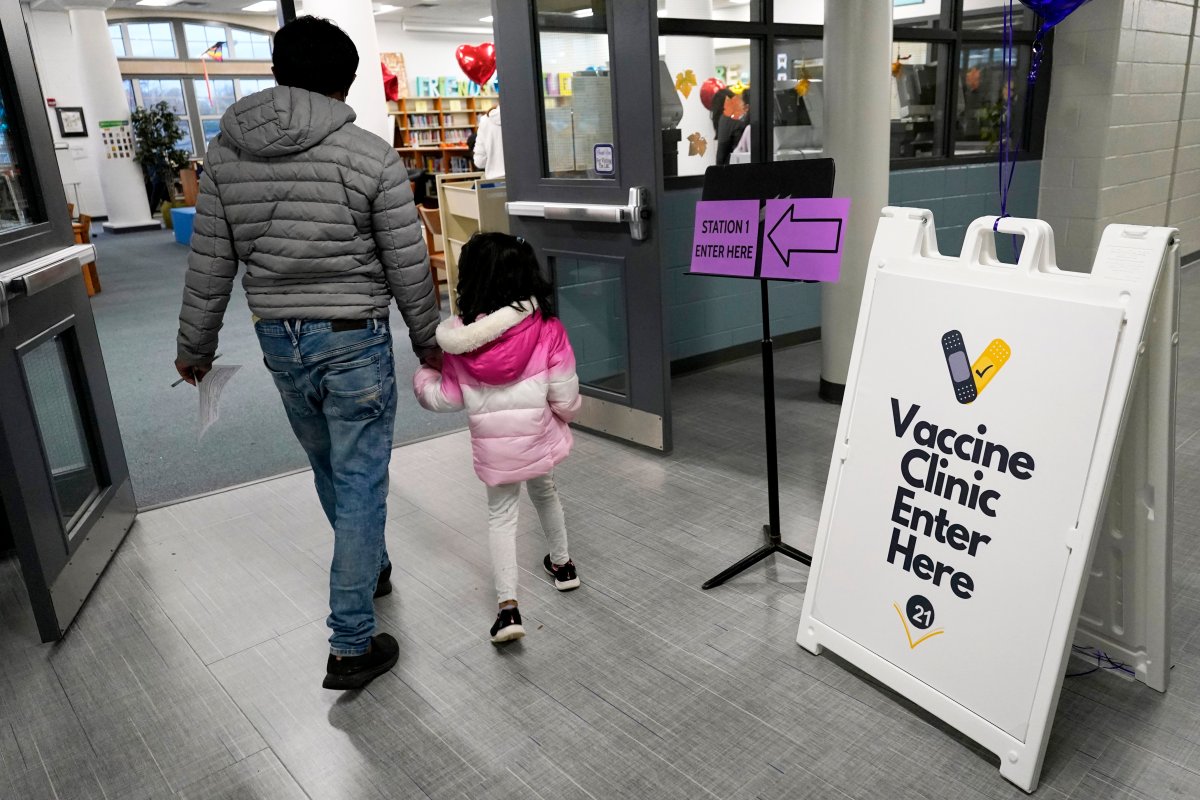Across the country, kids five to 11 years old will be rolling up their sleeves for a COVID-19 vaccine in the coming days.

Alberta’s chief medical officer of health, Dr. Deena Hinshaw, said Alberta’s rollout plan will be released Tuesday.
Alberta Health said doses of the Pfizer vaccine for kids haven’t arrived in the province yet, but it is hopeful they will arrive very soon, potentially as soon as Tuesday.
Alberta Health added it is “hopeful parents will be able to book their kids for vaccines later this week.”
“The pandemic has obviously had a huge impact on everyone,” clinical psychologist and University of Calgary Cumming School of Medicine associate professor Katie Birnie said Monday.
“The opportunity to be able to offer some of the protections to children that’s been afforded to adolescents or adults I think is something a lot of parents are really excited about.”
But with it also comes some nervousness for several kids.
“About 60 per cent of kids in this age range have some fear of needles,” Birnie said.
“Some of those can be really mild, a little bit nerves, a little bit of hesitation, but for about five to 10 per cent of the population, it’s quite severe. We might even consider it to be something called a needle phobia where they really have a very true anxiety response.”
Alberta Health Minister Jason Copping said there are about 390,000 kids in Alberta between five and 11 years old.

Get weekly health news
While parents won’t know the full rollout plan until Tuesday, Alberta Health has confirmed kids will be immunized at Alberta Health Services clinics for the most part, not doctors or pharmacies, and there are concerns from some parents on the impact.
“We’re grateful, regardless, that the vaccines are here, and we’d just like to see that AHS will maybe hopefully will expand out to pharmacies and doctors offices in the future just to make sure that there are no barriers that we can easily overcome by just distributing a little more widely,” Calgary mother Heather Moore said.
“People are already more hesitant to get their kids vaccinated. Let’s not make it harder by just making it harder to get to or harder to book.”
Alberta Health said the rollout will be on a much smaller scale and “is best managed through AHS’ dedicated clinics as the core providers,” according to spokesperson Lisa Glover. “In addition, the vaccine is a different dosage and formulation, so all the staff handling it will need to be oriented on it.”
“We appreciate that some parents may prefer to work with a pharmacist or physician, but the smaller scale of the five to 11 rollout is not a good fit to manage through more than 1,400 pharmacies and hundreds of physicians’ offices in addition to the AHS clinics,” Glover said.
AHS said it will have sensory-friendly clinics for kids.
Moore said she understands logistics may be a concern but is also worried about what that means for her child’s experience.
“My kid’s anxiety isn’t going to be improved by waiting in a line for his appointment and hearing probably other kids anxious and crying, and we want to make the experience as positive as possible because we want them to come back for their second one too,” Moore said.
How can parents prepare their kids?
Preparing kids for the vaccine is about communication, said Birnie, adding that for most kids, you can use simple pain management strategies.
She advises parents talk to their kids before the appointment: “Don’t spring it on them while you’re driving into the clinic parking lot.”
She suggests mapping out coping strategies with your kids and deciding what works best for them.
Birnie said they could include things like listening to music while in line or playing a game on a phone. She advises having a plan for when it comes time for the needle itself.
“That distraction, that smartphone, game, talking with mom or dad or the immunizer about fun things they can do can help.”
For younger kids, she suggests sitting on mom or dad’s lap with the parent hugging the child to help make them more comfortable.
Parents can also opt for measures to minimize the feeling of the needle itself, such as putting on numbing cream before the vaccine appointment.
But the work isn’t over as soon as the vaccine is finished.
“Talk about what went well and celebrate!”
“Go out and get a doughnut or smoothie or ice cream or something fun,” Birnie advises. “Focusing on what went well can also help it go better next time… and we know that it can help with pain and distress further along.”
For that small percentage of kids who do have a needle phobia, Birnie said it will likely take more planning and preparation for kids to get vaccinated. She suggests reaching out to a health-care professional to talk next steps.
She said needle fears tend to start around preschool, so most parents of kids in the five to 11 age range should have a sense by now if their child is severely afraid of getting vaccinated.









Comments